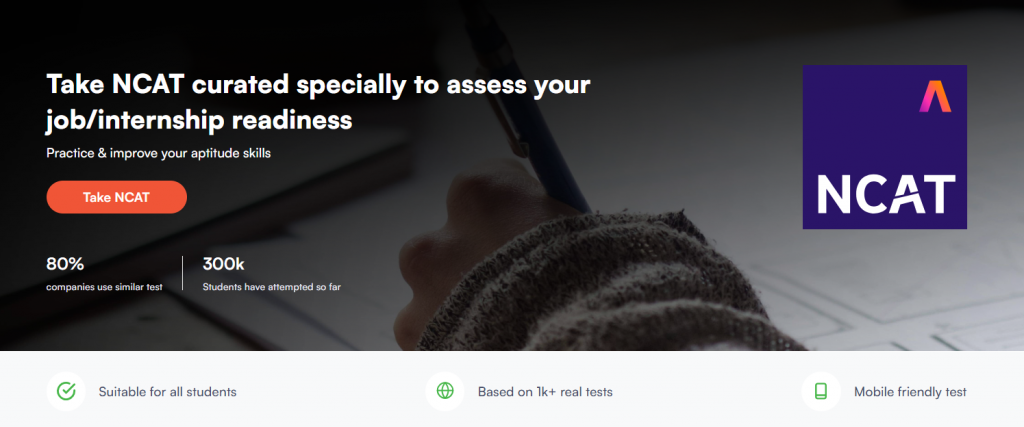Are you a college student or a recent graduate preparing for your Accenture interview? Look no further! This comprehensive guide will walk you through everything you need to know about…

What is Logical Reasoning? – Definition, Topics, Syllabus
Logical Reasoning is essential in various placement tests, competitive exams, and day-to-day problem-solving scenarios. It is a cognitive ability that allows individuals to analyze and draw conclusions based on given information. Logical reasoning, the cornerstone of analytical thinking, empowers us to sift through facts, assess arguments, and arrive at sound conclusions. More than just a test-taking skill, it shapes our decision-making in every aspect of life, from navigating complex career choices to making everyday judgments.
In this article, we will delve into the intricacies of logical reasoning, exploring its types, important topics, exams where it is compulsory, and effective strategies for solving logical reasoning questions.
Table of Content
What is Logical Reasoning? – Definition
Logical reasoning involves the ability to think critically, analyze situations, and make sound judgments. It’s about identifying patterns, relationships, and connections between different elements. This skill is not only crucial for academic success but is also highly valued in professional settings.
Logical Reasoning Questions With Answers PDF
Logical reasoning is a crucial skill that forms the backbone of various competitive exams, job assessments, and academic evaluations.
Types of Logical Reasoning
Logical Reasoning can be categorized into different types, each assessing a specific set of skills. The primary types include:
- Deductive Reasoning: This involves drawing certain conclusions from a set of known premises. Think of it as a chain reaction of logic, where each step leads seamlessly to the next, culminating in a conclusion. For example, ‘If all cats have fur, and Mittens is a cat, then Mittens must have fur.’
- Inductive Reasoning: This type of reasoning works the other way around, moving from specific observations to general conclusions. It’s about identifying patterns and trends and using the evidence to make educated guesses about the bigger picture. For example, observing several swans and finding them all white leads to the conclusion that most swans are white.
- Analogical Reasoning: This involves identifying similarities between two things and using those similarities to conclude one of them. It’s like holding up a mirror to two situations and seeing how they reflect each other. For example, comparing the structure of an atom to a solar system helps us understand the relationships between its components.
Important Topics Under Logical Reasoning
Many sub-categories within logical reasoning can appear in exams and real-life situations. Familiarizing yourself with some of the most common ones will give you an edge:
- Verbal Reasoning: This assesses your ability to interpret text, draw inferences, and identify logical fallacies in written arguments.
- Non-Verbal Reasoning: This evaluates your spatial reasoning and ability to analyze visual information.
- Analytical Reasoning: This challenges your ability to analyze data, identify trends, and solve problems using logic and critical thinking.
- Psychological Aptitude Tests: Psychological aptitude tests delve deeper, assessing specific cognitive abilities and personality traits relevant to particular careers or tasks.
- Statement and Conclusion: Identifying the relationship between statements and determining whether conclusions logically follow from them.
- Assumptions and Inferences: Recognizing implicit assumptions in arguments and drawing inferences based on available information.
- Syllogisms: Understanding the structure and logic of formal arguments to evaluate their validity.
- Blood Relations: Untangle the family tree with questions involving parents, siblings, and spouses, deciphering their relationships based on clues provided.
- Number Series: Identify the pattern in a sequence of numbers and predict the next one in line. Think of it as cracking a numerical code.
- Coding-Decoding: Translate messages using a secret code by understanding the underlying logic of substitution or transposition.
You can check out the latest logical reasoning questions and answers on our portal as well.
Exams Where Logical Reasoning is Compulsory
Since logical reasoning is a crucial skill for academic and professional success, many competitive exams test it extensively. For students, it is very important to practice multiple online aptitude tests to improve on their logical reasoning skills.
Here are some prominent examples:
- Placement Assessment Test: Logical reasoning is compulsory in placement tests because it assesses problem-solving, critical thinking, and decision-making skills crucial for the workplace.
- Management Entrance Exams (CAT, GMAT, XAT): These exams assess your aptitude for business management, and strong logical reasoning skills are essential for success.
- Government Jobs: Competitive exams for public sector jobs like UPSC, SSC, and Bank POs often place a significant emphasis on logical reasoning.
- Law Entrance Exams (CLAT, LSAT): Understanding legal arguments and drawing sound inferences are crucial for legal professionals, making logical reasoning a key component of these exams.
- Engineering & Medical Entrance Exams (JEE, NEET): While primarily focused on scientific knowledge, these exams also test problem-solving and analytical skills that rely heavily on logical reasoning.
How to Solve Logical Reasoning Questions?
Mastering the art of solving Logical Reasoning questions requires a strategic approach. Here are some tips to enhance your problem-solving skills:
- Read the question carefully and understand the requirements. Identify the key elements and relationships presented.
- Logical reasoning is a skill that improves with practice. Solve a variety of problems regularly to enhance your analytical abilities.
- Since logical reasoning encompasses various types of questions, it’s essential to be proficient in each category. Focus on improving your skills in verbal reasoning, non-verbal reasoning, and analytical reasoning.
- Logical reasoning sections in exams are often time-bound. Develop a strategy to allocate time wisely to each question.
- In multiple-choice logical reasoning questions, use the process of elimination to rule out incorrect options and increase your chances of selecting the correct answer.
In conclusion, mastering logical reasoning is not only vital for academic success but also a key skill in navigating professional challenges. Regular practice, a solid understanding of key topics, and effective problem-solving strategies are essential to excel in logical reasoning assessments.
Developing a strong foundation in this skill not only boosts your performance in exams but also enhances your problem-solving abilities in real-life situations.
Related Reads:
- Aptitude Test Sample Questions & Answers for Engineering Students
- Aptitude Test Sample Questions & Answers for Electrical Engineering
- Technical Interview Questions for Freshers
- TCS Aptitude Questions
- Aptitude Tests for Career Success
FAQs on Logical Thinking
What is the meaning of logical reasoning?
Logical reasoning refers to the ability to think rationally, analyze information, and draw conclusions based on sound principles. It involves systematic and coherent thinking processes to arrive at logical solutions.
What are logical reasoning skills?
Logical reasoning skills encompass the ability to analyze, evaluate, and draw logical conclusions. These skills include deductive reasoning, critical thinking, problem-solving, and the capacity to identify patterns and relationships in information.
What are the 4 types of reasoning?
The four primary types of reasoning are deductive, inductive, abductive, and analytical. Deductive reasoning draws conclusions from general premises, inductive reasoning makes generalizations from specific observations, abductive reasoning forms the best explanation, and analytical reasoning breaks down complex information.
How do you answer logical thinking questions?
To answer logical thinking questions, carefully read and understand the information provided. Identify patterns, relationships, and key elements. Practice regularly to enhance problem-solving skills, manage time effectively, and approach questions with a systematic strategy.
What is logical reasoning in an aptitude test?
Logical reasoning in an aptitude test assesses an individual’s ability to analyze information, interpret patterns, and make logical deductions. It evaluates critical thinking skills, essential for success in competitive exams and various professional scenarios.
What is basic logical reasoning?
Basic logical reasoning involves fundamental skills such as identifying patterns, making simple deductions, and understanding relationships between elements. It forms the foundation for more complex reasoning and problem-solving abilities.
What are logic-based questions?
Logic-based questions require individuals to apply reasoning skills to solve problems. These questions often involve analyzing patterns, making deductions, and evaluating information logically. They are common in aptitude tests, interviews, and assessments across various fields.
Latest Posts
Online Aptitude Tests for Freshers: Everything You Need to Know
In today’s competitive job market, aptitude tests have become an integral part of the recruitment process for many companies. As a college student or fresh graduate, you’re likely to encounter…
Mathematics Aptitude Tests Questions With Answers
In today’s competitive job market, aptitude tests have become a crucial step in hiring. Among these, the mathematics aptitude test is a key assessment for gauging problem-solving skills, numerical ability,…
Free Online Career Aptitude Test – Track Your Progression
Choosing the right career path can be challenging for college students and freshers. With countless options available, how do you determine the best fit for your skills, interests, and personality?…
50 Free Reasoning Mock Test Questions and Answers for Freshers
Preparing for competitive exams and placement interviews often includes rigorous practice in reasoning, especially with the help of reasoning mock tests. For college students and freshers, excelling in logical reasoning…
Popular Posts
Top 21 Highest Paying Jobs in India For Freshers
The Indian job market is evolving rapidly, with new opportunities emerging across various sectors. As a student or fresher, identifying the best career in India that aligns with your interests…
25+ Best Online Courses for Graduates in 2025 [Free & Certified]
In today’s competitive job market, earning a degree is just the beginning. To truly stand out, college students and freshers must constantly upskill, stay updated with industry trends, and gain…
Best CV Formats for Freshers: Simple, Professional & Job-Winning Templates
Creating an effective CV (Curriculum Vitae) is the first step towards landing your dream job or internship as a fresh graduate. Your CV is your initial introduction to potential employers…
Top Computer Science Jobs for Freshers in India
The rapid evolution of technology has created immense opportunities for fresh computer science graduates. With the IT sector expanding globally, India is one of the top countries offering lucrative and…
How to Answer – ‘What Are Your Strengths and Weaknesses?’
Landing your first job is a thrilling yet daunting experience. You’ve meticulously crafted your resume, researched the company, and prepped for potential questions. But there’s one question that throws even…



